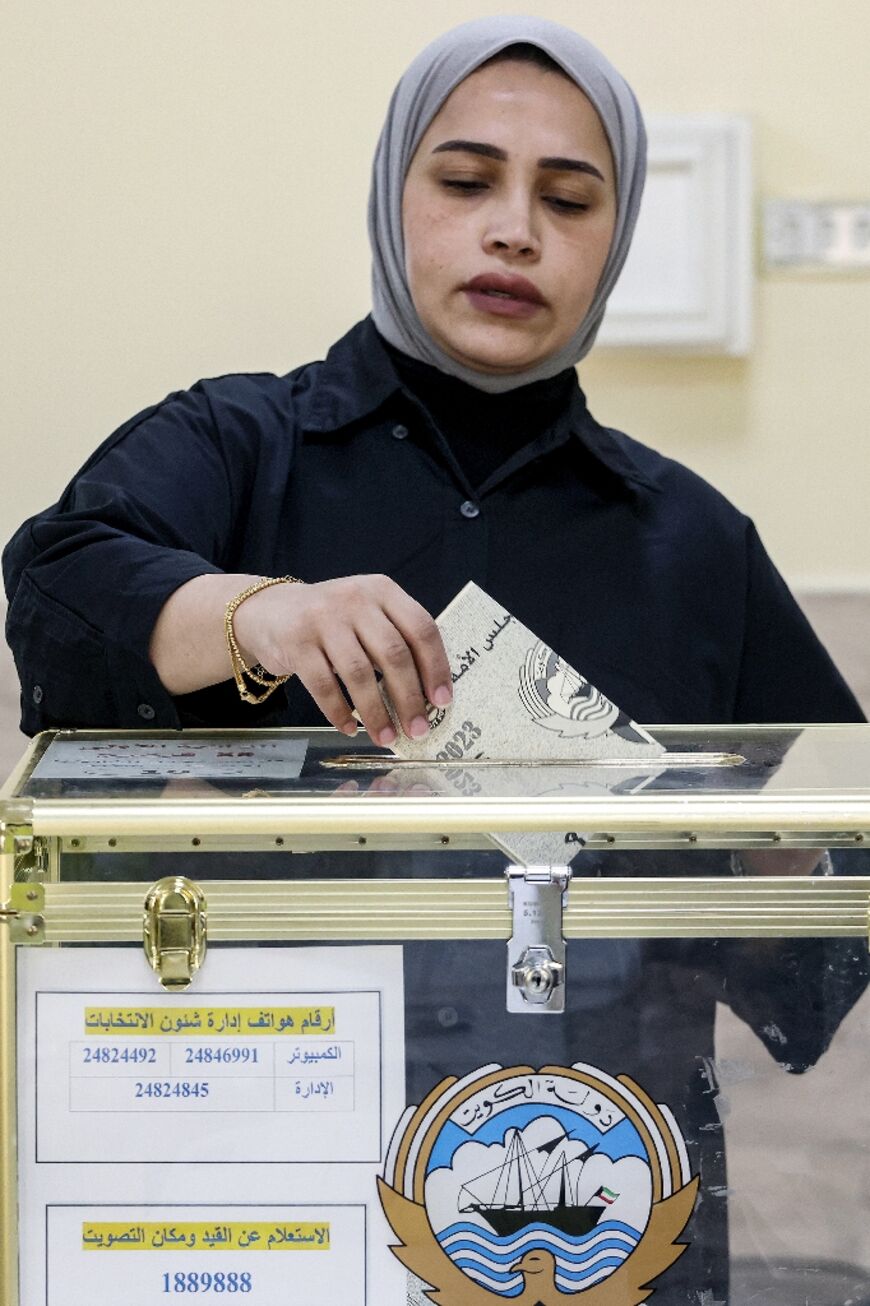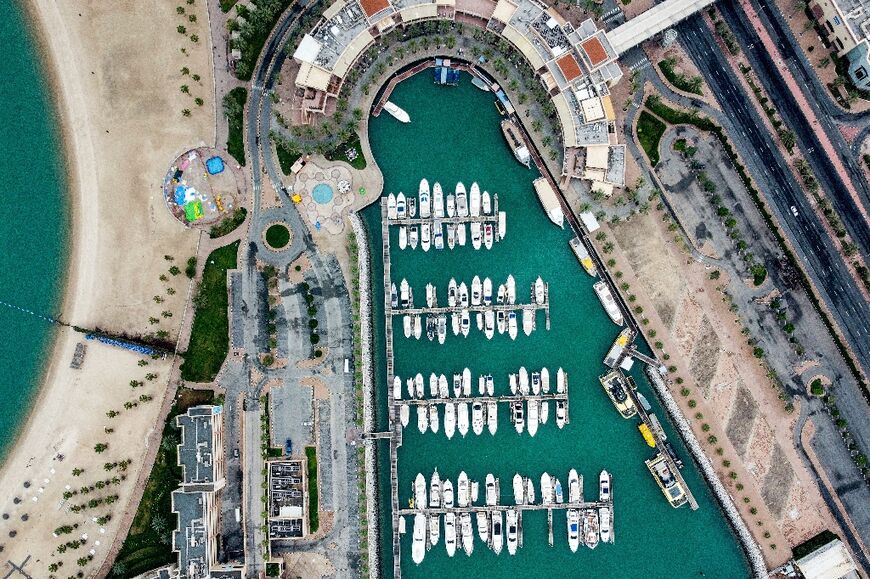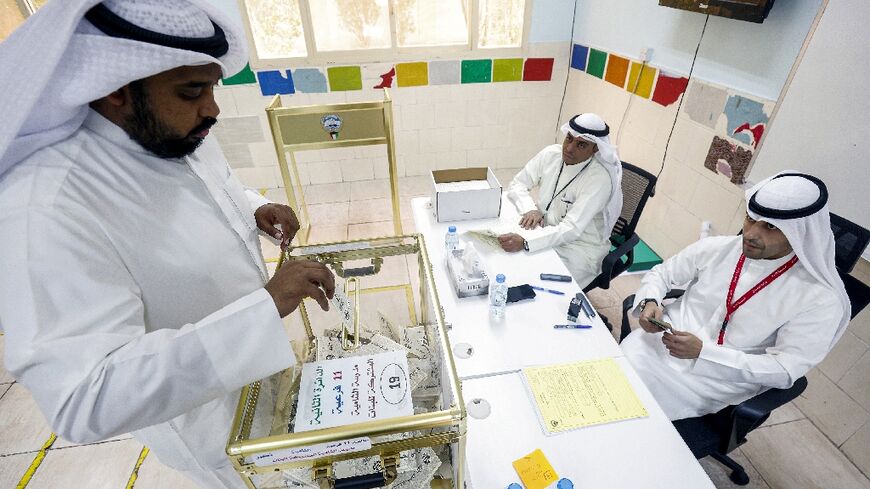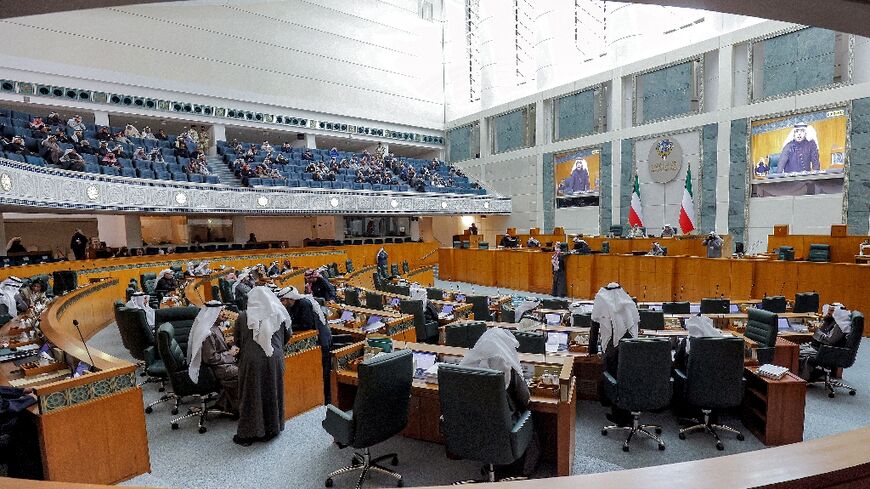Kuwait votes in opposition-led parliament, one woman elected

Opposition lawmakers won a majority in Kuwait's parliament with only one woman elected, results showed on Wednesday, after the Gulf state's seventh general election in just over a decade.
The opposition figures include Islamists and independent politicians not tied to the ruling family who are pushing for a raft of reforms.
The vote on Tuesday came after Kuwait's constitutional court in March annulled the results of last year's election -- in which the opposition made significant gains -- and reinstated the previous parliament elected in 2020.
Opposition lawmakers won 29 of the legislature's 50 seats, according to results published by the official Kuwait News Agency. Only one woman was elected -- opposition candidate Janan Bushehri.
The make-up of the new parliament is very similar to the one elected last year and later annulled, with all but 12 of its 50 members retaining their seats.
This has sparked concerns that the legislature may once again find itself locked in disputes with the cabinet, further deepening a political crisis that has delayed reforms and hampered growth.
"The government has to contend with a more combative parliament than the already combative 2022 version," said Bader Al-Saif, assistant history professor at Kuwait university.
"Therefore, expect bumps in the road unless radical reforms unfold," he told AFP.
Longtime speaker Marzouq al-Ghanim and Ahmed al-Saadoun, who replaced him last year, both return to parliament. Saadoun is expected to run again for the post of speaker.
Parliament's first session is scheduled to take place on June 20.
- 'Awareness of the people' -
"We are celebrating today the (victory of the) reformist approach," opposition lawmaker Adel Al-Damkhi told reporters after the results were announced.
"The election results are an indication of the awareness of the Kuwaiti people."
Turnout reached 50 percent one hour before polls closed, according to the Kuwait Transparency Society, a non-government group. Last year's election saw turnout of 63 percent.
Since Kuwait adopted a parliamentary system in 1962, the legislature has been dissolved around a dozen times.
While lawmakers are elected, Kuwait's cabinet ministers are installed by the ruling Al-Sabah family, which maintains a strong grip over political life.
Continual standoffs between the branches of government have prevented lawmakers from passing economic reforms, while repeated budget deficits and low foreign investment have added to an air of gloom.
Speaking to AFP on Tuesday, Bushehri, the new parliament's sole female member, said she expected it "to seek stability and move ahead on outstanding issues, whether political or economic".
Kuwait's Emir Sheikh Nawaf al-Ahmad al-Sabah congratulated the incoming deputies and called on them to "carry the responsibility of representing the people and... realize their aspiration for a better future," according to KUNA.
Oil-rich Kuwait, which borders Saudi Arabia and Iraq, boasts seven percent of global crude reserves. It has little debt and one of the strongest sovereign wealth funds in the world.
But its lack of stability has scared off investors and dashed hopes of reform in a wealthy country struggling to diversify in similar ways to Gulf powerhouse Saudi Arabia, Qatar and the United Arab Emirates.








